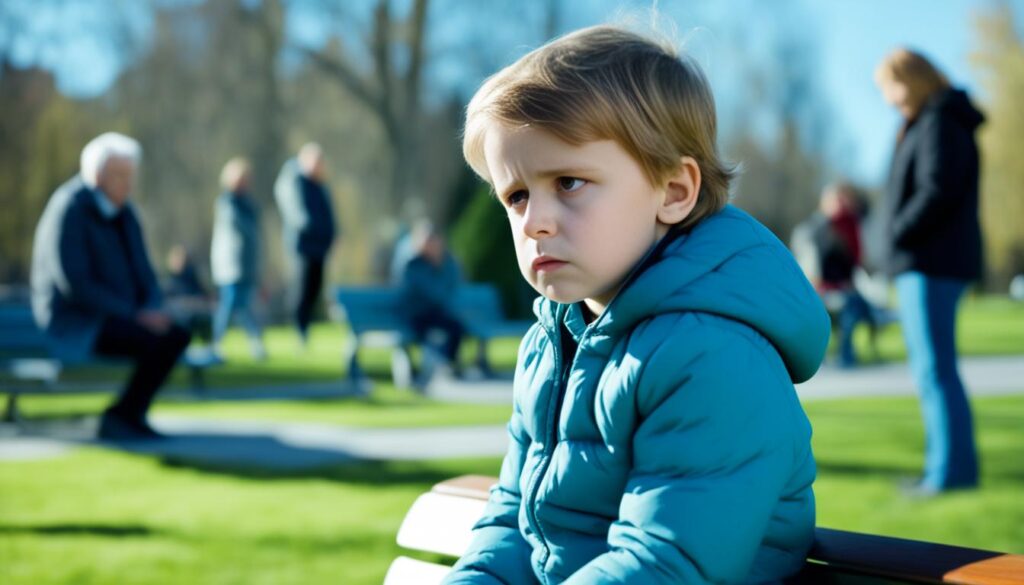Raising Kids After Divorce: Tips for Co-Parenting
Discover effective strategies for raising kids after divorce. Learn co-parenting tips, navigate custody arrangements, and support your children's emotional well-being through this transition.

Divorce can be tough on families, but how can co-parenting help kids thrive? Parents face many questions, like What strategies can help create a secure and stable environment for kids after a divorce?
This article will look at the importance of effective co-parenting. We’ll explore ways to help kids grow well and deal with co-parenting hurdles. By focusing on the kids and working together, divorced parents can help their children emotionally and socially during this tough time.
Key Takeaways
- Effective co-parenting strategies can help create a secure and stable environment for children after a divorce.
- Promoting healthy child development is essential, including fostering emotional and social growth.
- Overcoming common co-parenting challenges, such as communication issues and conflict resolution, is crucial for supporting the children.
- Seeking professional support can be beneficial for divorced parents navigating the complexities of co-parenting.
- Prioritizing the well-being of the children and working collaboratively with the ex-spouse are key to successful co-parenting.
The Importance of Effective Co-Parenting
Studies show that how parents work together after a divorce affects a child’s adjustment. When parents cooperate and respect each other, focusing on what’s best for the child, it helps. This creates a safe and stable place for the child.
But, too much parental conflict and negative actions can hurt a child’s feelings and behavior. This can lead to anxiety, sadness, and acting out.
Fostering a Secure and Stable Environment
Supportive co-parenting helps kids deal with divorce better. It means keeping routines the same, talking clearly, and agreeing on what the child needs. This helps kids feel safe and secure during a big change.
Promoting Healthy Child Development
Working well together lets parents create a caring space for their child. They teach how to solve problems, support good relationships with both parents, and help with any issues the child has. This focus on the child’s well-being lessens the divorce’s impact and helps them grow well.
“Effective co-parenting is essential for promoting the best possible outcomes for children after a divorce.”
In short, how parents get along after a divorce is key to how well the child adjusts. By making a safe and supportive space and focusing on the child’s growth, parents can help their kids do well during tough times.
Strategies for Successful Co-Parenting
Keeping a good co-parenting relationship after divorce takes effort from both parents. It’s important to improve communication and solve conflicts well. This helps make a stable and supportive place for the kids.
One important idea is to talk about co-parenting like a business. This means making polite requests, listening to the other parent, and not using harsh words. Good communication helps solve problems and stops parents from trying to show they’re in charge.
It’s also key to have the same rules and routines in both homes. Parents should work together on this. This gives kids a sense of safety and helps them feel secure during tough times.
By using these teamwork methods, divorced parents can put aside their differences. This helps the kids and keeps the co-parenting relationship strong over time.
| Effective Communication Strategies | Conflict Resolution Techniques | Establishing Consistency |
|---|---|---|
|
|
|
“Successful co-parenting is not about winning; it’s about putting your child’s needs first and working together to create a stable, supportive environment.”
By focusing on a positive co-parenting relationship, improving communication, and keeping things consistent at home, divorced parents can make a great place for their kids to grow.
Raising Kids After Divorce: Overcoming Challenges
Co-parenting after divorce can be tough, especially with a lot of conflict between ex-partners. Parents struggle to put aside their feelings like anger and hurt for their kids. Dealing with a tough ex, figuring out custody, and handling money and logistics adds stress.
But, it’s key for parents to get past these hurdles and focus on their kids. This means getting help from professionals, learning to handle strong feelings, and remembering the need for working together in co-parenting.
Navigating High-Conflict Co-Parenting
When an ex doesn’t cooperate, co-parenting gets hard. Parents must set clear rules for talking, avoid fights, and make choices that help their kids. Keeping the focus on the kids and not trying to “win” fights is key for a good co-parenting relationship.
Managing Emotions During Divorce
Divorce brings a lot of emotional ups and downs for parents and kids. It’s vital for parents to deal with their feelings in healthy ways, like through therapy or journaling. This helps them support their kids better during this tough time.
“The most important thing is to remember that your children’s well-being should always be the top priority, even when dealing with a high-conflict ex-spouse.”
Maintaining a Cooperative Mindset
- Try to talk openly and respectfully with your ex.
- Choose to compromise and solve problems together.
- Keep in mind the goal of giving your kids a stable, loving home.
- Look for help from a co-parenting counselor for tough times.
By facing the challenges of co-parenting after divorce and keeping the kids first in mind, parents can give their children a safe and loving place to grow.

The Role of Professional Support
Many families find it helpful to use professional resources when co-parenting after a divorce. These tools can make parents better at talking to each other, solve conflicts, and work together better.
Family therapy is a great choice. It’s a safe place for parents to deal with their differences. Therapists help couples learn how to solve problems, understand each other better, and put their kids first.
Parent education programs are also key. They give parents useful knowledge and tools for shared custody. They help with making routines and keeping conflict away from the kids.
Mediation and parent coordination services help couples make parenting plans together. These services have experts who help parents talk better and find ways to work together.
Using professional resources for co-parents helps families deal with their differences. It reduces how much kids see conflict and helps create a supportive co-parenting relationship. With the right help, co-parents can give their kids a stable and caring home, even after divorce.
“Investing in professional support can be a game-changer for co-parents, helping them build the skills and strategies needed to put their children’s well-being first.”
| Professional Resource | Benefits |
|---|---|
| Family Therapy | Improves communication, conflict resolution, and co-parenting collaboration |
| Parent Education Programs | Provides practical tools and strategies for effective co-parenting |
| Mediation and Parent Coordination | Helps develop mutually agreeable parenting plans and resolve ongoing issues |
Conclusion
Raising kids after a divorce takes a lot of effort from both parents to work together. Ending a marriage is tough, but it’s key for divorced couples to think about their kids’ well-being. They should learn to work together well.
This helps create a safe and stable place for kids to grow. It also helps kids develop healthily and deal with the changes they face.
Cooperative co-parenting is very important. When parents get along, they give their kids the stability and support they need. This helps kids keep strong bonds with both parents and avoids the bad effects of fights in divorces.
With the right plans and help from experts, divorced families can rebuild and make a positive place for their kids. By putting their kids first and focusing on working well together, divorced parents can help their families get through this tough time and come out stronger.
FAQ
What are the key strategies for effective co-parenting after divorce?
Successful co-parenting means keeping a professional, child-centered relationship with your ex. It’s important to talk well, solve problems in a healthy way, and agree on rules. This helps kids feel secure and stable.
How can divorced parents foster a secure and stable environment for their children?
Working together, showing respect, and focusing on what’s best for the child helps create a safe space. This approach is key for kids’ well-being and helps them deal with the divorce better.
What are some common challenges in co-parenting after divorce, and how can they be overcome?
Co-parenting post-divorce can be tough, especially with lots of conflict. It’s hard to put your feelings aside and think of your child first. But, getting help, learning to cope, and remembering the need for teamwork can make it easier.
How can professional resources support divorced families in the co-parenting process?
Family therapy, parent education, mediation, and parent coordination services can boost communication and conflict resolution. They help parents work together better, creating a supportive co-parenting relationship.
What are the long-term benefits of effective co-parenting for children after a divorce?
Good co-parenting is crucial for kids adjusting after a divorce. It leads to a stable home, supports healthy growth, and reduces the bad effects of the split. This means kids do better emotionally and socially.




